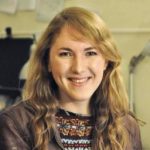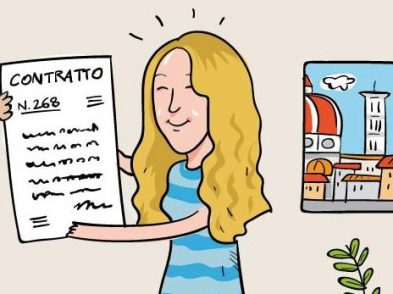It’s a sunny-but-chilly winter morning in Florence and a small group of Quakers—formally known as the Religious Society of Friends—is warming up inside Sylvia Hetzel’s apartment. The fledgling family, founded in January 2019, meets in homes on a rotating basis; Hetzel just happens to be hosting today. Still, in the Florence Friends “hierarchy”, the group jokes good-naturedly, Hetzel is the real deal. Her family’s Quaker heritage stretches back to 17th-century England, the time when the movement itself first emerged.
Hierarchy, though, is the antithesis of what the Friends stand for (and the Florence Friends, quick to qualify their joke, want to make sure I understand this). George Fox, generally acknowledged as the tradition’s founder, rejected the idea that ordained clergy were necessary to commune with Christ1 or the divine. The growing Florence contingent thus has no “head Quaker.” While video journalist Kirsten Hills has done much of the meeting orchestration and word-spreading, like Hetzel, she bristles at the idea of being seen as “in charge”.
It will indeed become clear that no one’s in charge when the meeting officially begins. “Pregnant silence” and “expectant waiting” are hallmarks of all Quaker gatherings, including this one, which is full of chatty, gregarious types. (Hetzel explains that since the Florence Quakers meet in member homes, they tend to socialize for a spell first, easing in to the bona-fide Meeting phase of the morning, which will be spent mostly in silence. It’s a fittingly Florentine deviation from the typical setup at a formal Quaker Meeting House where, upon arrival, participants take their seats and move straight into contemplation.)
The gestation-tinted terminology of expectant waiting highlights how, for Quakers, quiet is generative. While silent gatherings are the default, congregants who have an insight they feel called to share can freely do so. As Graham Ralph writes in Living our beliefs, “In the quietness of a Quaker meeting we may become aware of a powerful spirit of love and truth; we may feel that we have shared that of God that exists within each of us…silence can surprise and the spirit can burn even more brightly.” Silence is then not an impediment to interaction, but simply a form of it.
Florence’s burgeoning Quaker group is not the first in Italy. Gatherings have taken place in Bologna for over 25 years, although it was only in 2015 that the group gained recognition from the Friends World Committee for Consultation (FWCC), a Quaker NGO headquartered in London. And in Florence, notes Hills, a woman named Maria Comberti coordinated local meetings until her death in the early 1990s, when the group fizzled out. (Comberti self-identified as the “only Italian Friend” in a 1971 article she wrote for the Friends Journal.)
Comberti was likely not as alone as she thought: Italian is the dominant language today at the Bologna meetings. (in Florence, the current group mostly comprises native English speakers.) But Quakers have no formal creed, and their proceedings are unceremonious, which might partially explain why many Italians, raised in or surrounded by liturgy-rich, doctrine-heavy Catholicism, could find the Friends confusing.
Yet on the flip side, dogma fatigue is what draws many people into Quakerism and out of other traditions. Gen Z-er Mark, who travels with his mother by train to attend the Florence group’s meetings, is one of them. His interest in Quakerism was sparked by the popular YouTube vlogger Jessica Kellgren-Fozard, whose video “Oh God…Let’s Talk About My Religion” has 351,000 views. As Mark was wrestling with the rigidity he perceived in his “home” faith, he discovered Kellgren-Fozard and her descriptions of the Quaker value system, including its prizing of multiple perspectives. On the whole, it rang truer for him.
Others in the Florence Friends community, like Evan Welkin, a Seattle area native now residing near Civitella di Romagna, grew up in Quakerism. While the faith might appear fundamentally inward to those outside of it, Welkin has built his current life on outward embodiment of Quakerism’s core principles. He and his Italian partner, Federica Faggioli, have transformed her family’s long-running agriturismo into a sustainably-minded living-learning community, Borgo Basino (www.borgobasino.org), hosting workshops and trainings like “Helping the Helpers,” which builds trauma awareness for people working with refugees. (Institutions like the Quaker Council for European Affairs and the Quaker Offices at the United Nations speak to the importance of social justice and service among the Friends.)
Rachael Allen wrote recently in The Lily that traditional patterns of religious engagement have long been “thought of like the tides—receding as young adults age, then returning as they settle down.” The Florence Friends vary in age and “settled” status, but Allen’s image of tides is an apt descriptor for their experiences. Hills and Hetzel are “boomerang” cases who always carried Quakerism with them, but had lost touch with their wider community upon moving to Italy, until unexpectedly connecting last year and forging the group.
The transplant factor is not insignificant. No current Florence Friends member counts Italy as his or her native country, though many call it home. Several, when sharing their motivations for attending meetings, described how Quakerism gave them an anchoring force and community in foreign contexts, either in Italy or earlier on elsewhere. And Hills, in a recent, reflective article for online magazine The Friend, wrote that while she didn’t know any of the Florence group members well initially, “now they feel like extended family. I had forgotten the power of silence, and the familiarity.”
Breathing in the quiet and then bearing witness to the group’s reflections muddied any boundaries I might have raised that Sunday: sitting in the circle in Sylvia’s hushed home, I couldn’t easily disentangle my TF assignment from my non-work-related needs for connection and contemplation. What sprang to mind was the journalist Dennis Covington’s 1995 work, Salvation on Sand Mountain. Covington begins in a detached, reporter-ly tone, covering the trial of a rural Appalachian preacher accused of murder, but develops an
interest in the ecstatic religious practices of area snake handlers. As his connection to the community deepens, both his writing and experience evolve into something far more ineffable and personal.
It bears acknowledging that pregnant silences are not poisonous serpents. But, arguably, the two scratch the same fundamental itch.
1 While The Society of Friends has Christian roots, today Quakers’ approaches to theology vary widely. Some individuals and branches regard Jesus Christ as lord, while non-theist and universalist individuals and branches also exist. Common threads across all are a dedication to inward reflection; a focus on the present rather than the afterlife; a commitment to service and social justice; and a belief that God or the “Light” exists within all people and is constantly being revealed to us through experience. (Further reading: Advices and queries booklet)
Interested in attending a Quaker meeting? Due to the small group size, current meetings are scheduled based on member availability. Email quakersinflorence@gmail.com to inquire, and follow along on Instagram at @QuakersinFlorence.







